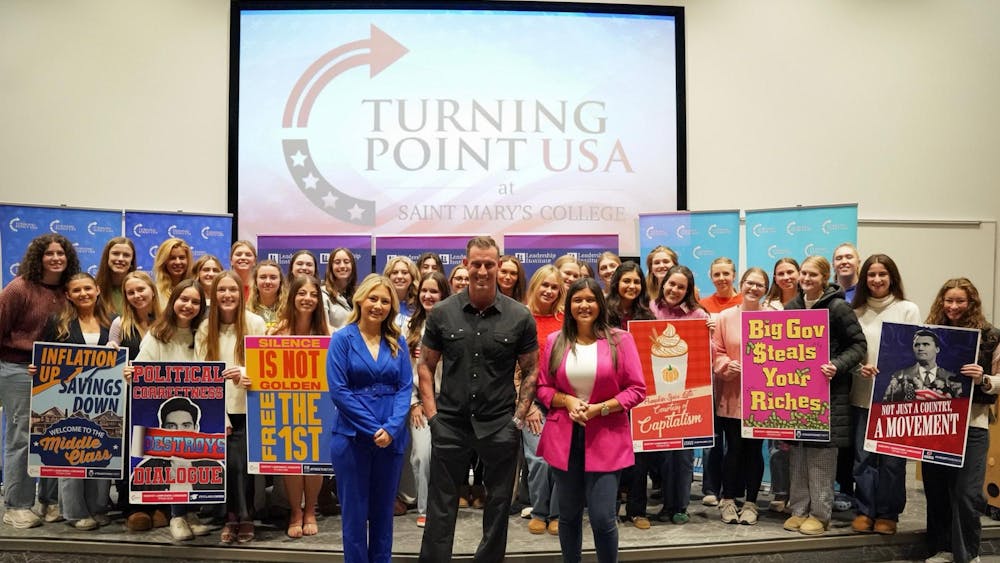It all began with a phone call in my office from the Business Manager of Alliance for Catholic Education. She asked me, “Do you know such and such a student?” I told her I did not. She said, “This student has a work study job in ACE and he asked me to write a letter to the state indicating that he does not receive health insurance as part of his work study job.” She then explained, “Father Joe, this probably means that he does not have health insurance and has applied to the state for Medicaid. And the state wants a letter indicating that he does not receive health insurance from his employer.” In the 40 plus years I have been associated with Notre Dame it never once occurred to me that a Notre Dame student might not have health insurance. Later that same day I was working out at the Rock. At the end of my workout I went to the water fountain to get a drink of water at the same time as a student who, in God’s Providence, turned out to be the very student that the Business Manager had called me about. That was about two years ago. That set me on a journey to discover a shadow population at Notre Dame — our economically poor students. These students come from every culture and race. Notre Dame has been generous in awarding scholarships and financial assistance. There is, however, much more that has to be done once they enroll at Our Lady’s school. Let me use an analogy. I enrolled in Notre Dame in the fall of 1972, the first year that Notre Dame admitted women. I recall that in my freshman class there were 1500 men and 125 women. For many years, what Notre Dame knew about women was mainly that they were not men … but not a lot more. It took many years for Notre Dame to fully embrace women undergraduate students and to understand them as women. Now some 40 plus years later, Notre Dame is a very different and better place. For 20 years or so, Notre Dame has intentionally recruited students from diverse cultural and socio-economic backgrounds. And though it may seem surprising after 20 years, I believe that what Notre Dame knows about economically poor students is mainly that they are not affluent. But we need to learn so much more and to think differently. If an economically poor student comes here from the south or the southwest, there’s a good chance that he or she won’t have winter clothing. How will he or she be able to purchase winter clothing — coats and boots and hats and scarves and gloves? If an economically poor student wants to play a club sport or take piano lessons, where will the registration fees come from? If an economically poor student is accepted to do an ISSLP and has no health insurance, where will the money come from for the required vaccinations? If an economically poor student gets medical school interviews at medical schools around the country, how will he or she pay for the plane fare or for the hotel and all the related expenses for an interview? If an economically poor student wants to go on a Campus Ministry pilgrimage, where will the money come from for the trip? If an economically poor student is on a club team and the team travels, what money will he or she have for meals each day? If an economically poor student stays on campus for break, as most do, why do the dining halls close, forcing them to use all their flex points? I could go on and on, but the point is obvious. Over the past two years I have turned to friends to ask for money to help our economically poor students have the Notre Dame experience that we all want for all our students. What began as buying winter boots and a coat for one student has opened my eyes to the needs of many Notre Dame students. There are some Rector funds available for students. And this is great. Yet not all students know about them, and imagine how humiliating it is for a first year student to go to his or her Rector, whom he or she does not really know and ask for money for something. Students from some cultures simply won’t do it. There are other people and departments doing what I am doing but, as in my case, on ad hoc basis. Some students know about it; some do not. Now is the time for the University to take seriously the presence of economically poor students here. The University must commit itself to establishing an office or a center that will serve the needs of our economically poor students. Many other universities — Boston College and the University of North Carolina among them — have already established such offices or centers and set them up at the heart of the University, to make it clear that the mission of the University includes service to economically poor students. Gradually it becomes known to economically poor students that there is a place to go for help or assistance. I love Notre Dame, as an alumnus and as a Holy Cross priest assigned to live and work here. I consider it a privilege. I hope that Notre Dame will continue to intentionally recruit economically poor students, but the University must make a new commitment so that every student can live the Notre Dame experience. Now is the time.
Fr. Joe Corpora, C.S.C., works in the Alliance for Catholic Education and in Campus Ministry and lives in Dillon Hall. He can be contacted at joseph.v.corpora.2@nd.edu









